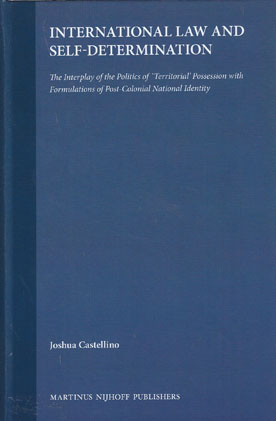
The principle of self-determination has at heart the achievement of true representation and democracy based on the idea that the consent of the governed alone can give government legitimacy.
The principle was primarily responsible for the de-colonization process that shaped our current international community. Self-determination has been used in equal rhetorical brilliance by a number of leaders - some meritorious, with a genuine concern for human emancipation, - others dubious, with ascendancy to power at the heart of their project.
In any case, ""self-determination"" has come to mean different things in different contexts. Being a vital principle, especially in the post-colonial state, it is one factor that represents a threat to world order while at the same time holding out the promise of longer-term peace and security based on values of democracy, equity and justice.;This book looks at the intricacies of the norm in its current ambiguous manifestation and seeks to deconstruct it with regard to three particularly inter-related discourses: that of minority rights, statehood and sovereignty, and the doctrine of ""uti possidetis"" which shaped the modern post-colonial state.
These norms are then analyzed further within two case studies. One, concerning the creation of Bangladesh where self-determination was achieved. The second, examines the situation in the Western Sahara where self-determination (whatever its manifestation) is yet to be expressed. In the course of these case studies we seek to highlight the problematic nature of national identity and the self, in settings far removed from post-Westphalian Europe.